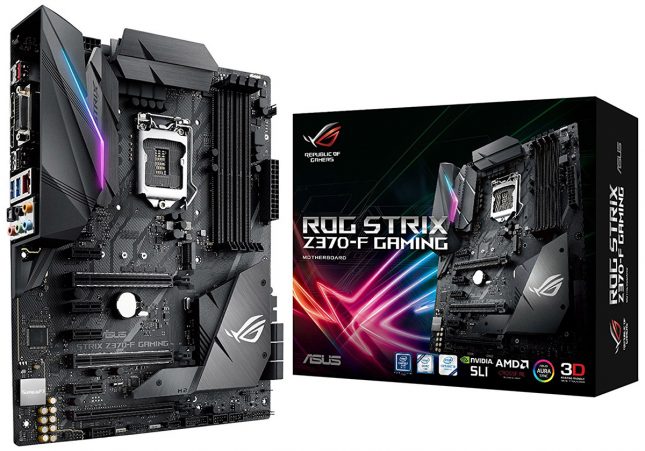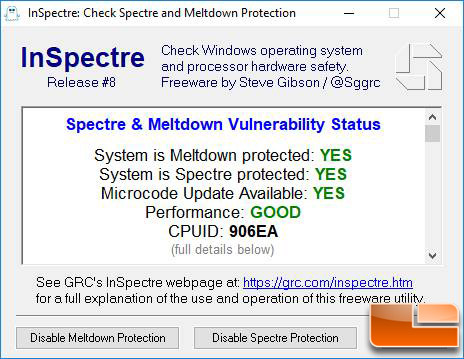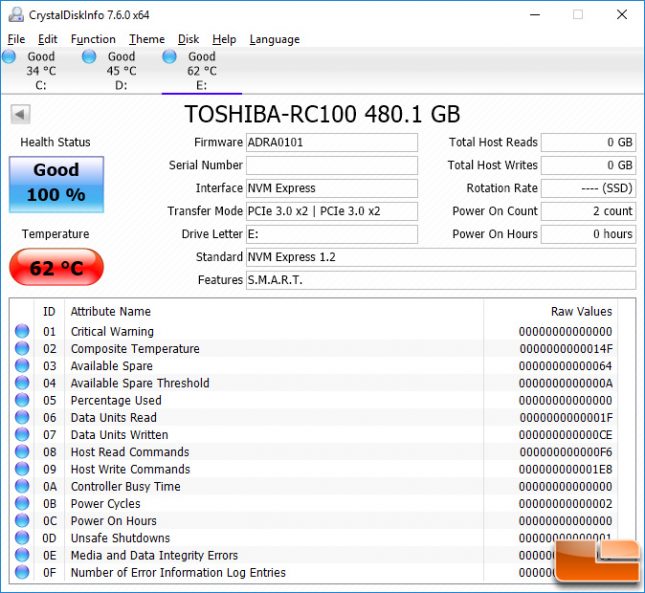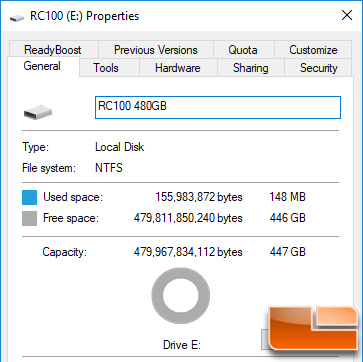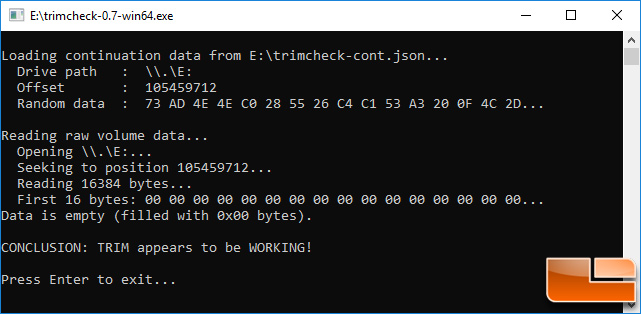Toshiba OCZ RC100 SSD Review – M.2 2242 PCIe NVMe
The SSD Benchmark Test System & TRIM Support
Before we look at the numbers, lets take a brief look at the test system that was used. All testing was done on a fresh install of Windows 10 Pro 64-bit (version 1709 build 16299) and benchmarks were completed on the desktop with no other software programs running. This means windows defender, windows update, disk fragmentation and everything else that would interfere with testing was disabled. Windows 10 also had the power option set to high performance and we also disabled c-states and Turbo mode on the Intel Core i5-8400 to ensure our numbers are spot on and repeatable.
The Intel Z370 platform that we used to test the storage drives was based around the ASUS ROG STRIX Z370-F Gaming motherboard with BIOS 0614 that came out in April 2018. We used Intel Chipset Driver v10.1.1.45, Intel Management Engine Interface v11.7.0.1045 and Intel RST v15.9.0.1015 drivers. This is important to point out as they include some of the fixes for Meltdown and Spectre design flaws that have recently rocked the PC Market. The Corsair Vengeance LPX DDR4 16GB 3200MHz memory kit was run with CL15 memory timings and a Samsung SSD 850 PRO 512GB SATA SSD was used as the primary drive.
It should be noted that our test system is fully patched for the Spectre & Meltdown vulnerabilities as you can see in our InSpectre Release #8 check that is shown above. Most review sites have not fully updated their systems and many storage performance benchmarks have taken a pretty good ding with all the patches and fixes. This is why our write speeds might be lower on the same drive as other sites. We started over our SSD benchmark charts in 2018 due to the performance differences before and after the patch.
Intel Z370 Test Bench
| Intel LGA 1151 Test Platform | |||||
|---|---|---|---|---|---|
| Component | Brand/Model | Live Pricing | |||
|
Processor |
Intel Core i5-8400 | ||||
|
Motherboard |
ASUS STRIX Z370-F Gaming | ||||
|
Memory |
Corsair Vengeange LPX 3200MHz 16GB | ||||
|
OS Drive |
Samsung 850 PRO 512GB | ||||
|
Power Supply |
Corsair RM850x | ||||
|
Operating System |
Windows 10 64-Bit | ||||
CrystalDiskInfo 7.6.0 Readout:
The readout on CrystalDiskInfo 7.6.0 shows that the Toshiba OCZ RC100 drive series supports S.M.A.R.T. and the NVM Express 1.2 standard. Toshiba says that this series supports static and advanced wear-leveling, advanced garbage collection, TRIM support and bad block management in addition to the built-in S.M.A.R.T technologies listed by CrystalDiskInfo. The drive we received had firmware version ADRA0101 installed and that is the version that we used for general testing and benchmarking.
The overall capacity shows up as 447GB on the Toshiba OCZ RC100 480GB drive in Windows 10 version 1709. Please remember that 1GB = 1,000,000,000 bytes. A certain portion of capacity may be used for system file and maintenance use, thus the actual available capacity may differ from the labeled total capacity.
The only Windows ‘tweak’ that we did on the RC100 was to disable Windows write-cache buffer flushing under storage properties in Windows Device Manager.
Does The Toshiba OCZ RC100 M.2 PCIe NVMe Series Support Trim?
Most SSDs today support the TRIM command, but we still run a quick test to ensure that the command is being properly passed through to the SSD and being done. A great free utility called TRIMCheck can be run to ensure that TRIM is functioning properly.
According to TRIMCheck v0.7, the Toshiba OCZ RC100 480GB drive that we are testing today does properly execute the TRIM command correctly as the random data that was written to the drive was properly cleaned.
Let’s have a look at the performance!

